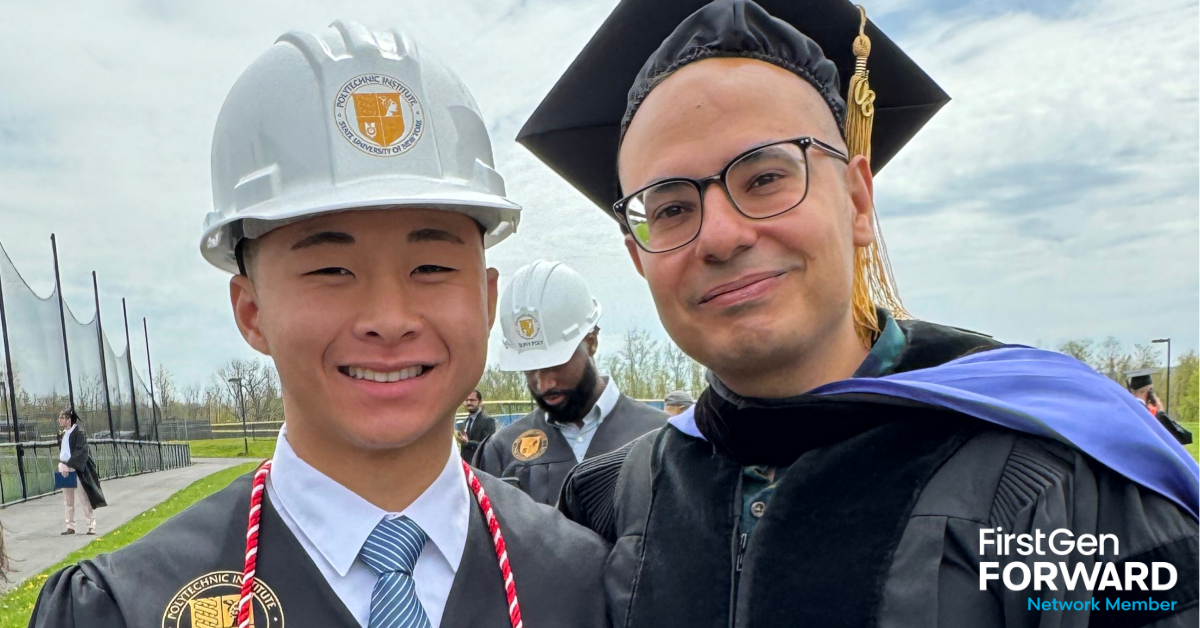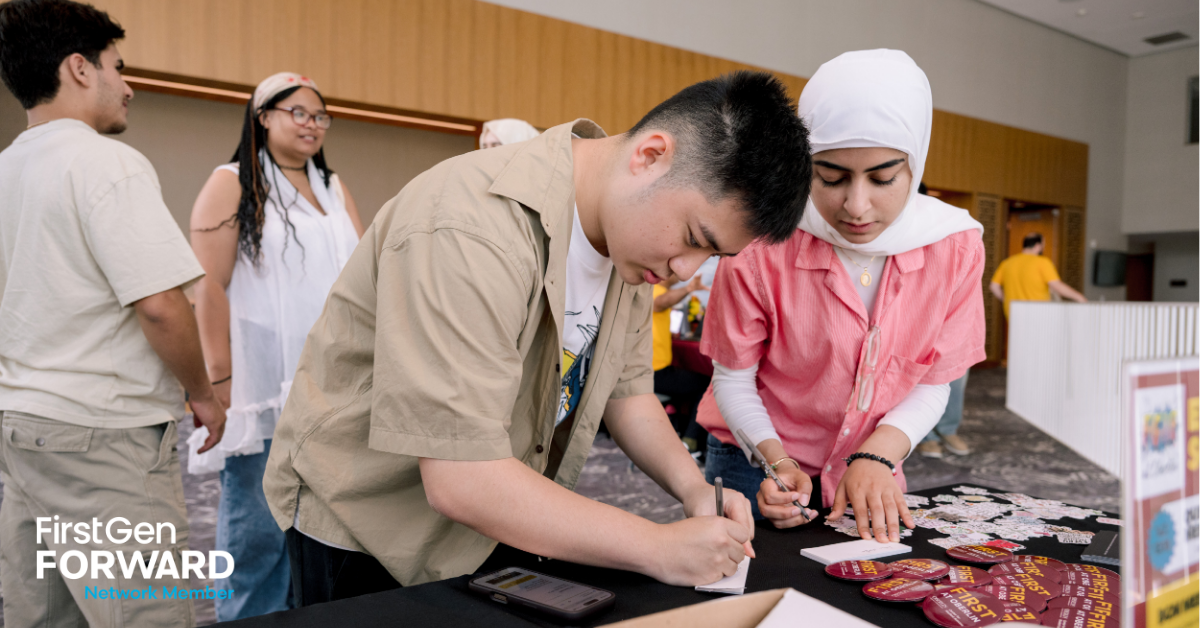Being first-generation is not a label or identity that fades away with time, education, or experience. In many ways, it has become more pronounced and essential to me as a student and an emerging professional in higher education.
I’m constantly discovering new approaches in which being first-generation can be applied to the spaces that I occupy. This can include spaces discussing student success, transitions, outreach, and more while also providing a critique of systems and routines. In these discussions, I realized I’m working from my experience and knowledge as a first-generation student advocating for students of all backgrounds increasing access and inclusive excellence across many spaces of higher education. Though my experience and perspective are based on education, first-generation students have the knowledge, skills, and ability to inform our praxis across multiple fields and specialties.
Understanding that being first-generation is an identity that I will always hold, I've identified three necessities that have supported my journey in school, internships, and professional settings.
Seeking and engaging in community learning
As an undergraduate student, my first-year learning community supported my transition into college, but I had a deeper desire to feel connected in classrooms or with classmates. Opportunities to learn and discuss with a sustained group create an atmosphere where learning is more than analyzing text or theory. It highlights perspective, critiquing and searching for impactful solutions, while building relationships that extend past the classroom. My ethnic studies courses provided a space to focus on communal learning. In these courses, each student was intentional about contributing and absorbing information.
My graduate program at NIU is a cohort model engaging in communal learning. Our learning and discussions have assisted in understanding the material but also creating a community focused on encouragement, support, and care. I’ve absorbed so much through our connections which has reinforced my education and allowed me to see institutions, communities, groups, and myself more deeply. As a first-generation student, I will always seek and advocate for intentional learning spaces in and out of education that focus on centering care and a sense of belonging.
Adjusting to transitions
As a first-generation student I learned quickly within college I’d have to transition through many different environments even if I didn’t feel prepared. We face numerous transitions in a short amount of time including moving away to college, navigating campuses, communicating with professors, starting internships, job searching, and accessing graduate school. Expectations for success and obtaining the “perfect” college experience add pressure and assumption that our transitions should be smooth and seamless which many of us know is untrue.
What has helped me overcome the fear of facing multiple transitions or trying to perfect a transition is to acknowledge what is and isn’t in my control. By understanding what I lack control over I can better concentrate time and intentionality on what I can directly impact for myself. As first-generation students, we have adapted to being versatile and resilient in the face of many transitions, where with each one we learn more about ourselves and how to assist those who come after us. I’ve learned to see each new transition as an opportunity to form new experiences, gain skills, and openly express worries or excitement.

Mentorship is essential
We hear time and time again as first-generation students the importance of seeking support from instructors, scholar contacts, or mentoring programs. We don't realize the hidden value until we’ve found it. My professors' support was not solely centered on delaying due dates but standing in as advocates for me while helping me navigate higher education.
They have introduced me to experiences such as assisting with research, writing and publishing papers, and hidden networks of colleagues ready to provide their assistance. My former scholar contacts and supervisors helped prepare me for my first professional position as they saw my growth from a student to an emerging professional. It was because of them I found how I could support students and their journey to and within higher education.
Mentors can also include friends, by observing what they’re doing on campus and in their careers as they can help provide insight in ways you may have not thought about. The most powerful inspiration can be sparked by hearing how our friends are becoming leaders on campus and within their communities. As first-generation students, no matter where we land for school or work, having a mentor to guide us doesn’t just help us reach success – it helps build us as people.
A first-generation student becoming a first-generation professional
What I’ve discussed above has allowed me to reach this point mere months away from graduating with a master's degree. I have learned a lot in these last two years. I have been invited to many spaces that have exposed me to the inner workings of a university and the work being done to support all students.
I have seen coalition building of professionals from all areas come together to support making transitioning into and succeeding at NIU a priority. This coalition building is addressing areas the university has identified for necessary development. This recognition and willingness to grow and evolve to student needs is exemplary of what a university should be doing. I’ve learned that work being done for first-generation students is work that positively impacts and assists all students.
I am thankful for my experience of witnessing this and hearing from my cohort about the work being done in their areas on campus supporting students and education. Heading into the professional landscape I will continue being open to learning and take my knowledge formed from my transitions, communal learning, mentors, and educational institutions like NIU to assist all students including first-generation students with their educational and professional success.
For more information on Northern Illinois University's approach, please visit their website here.
.png)

